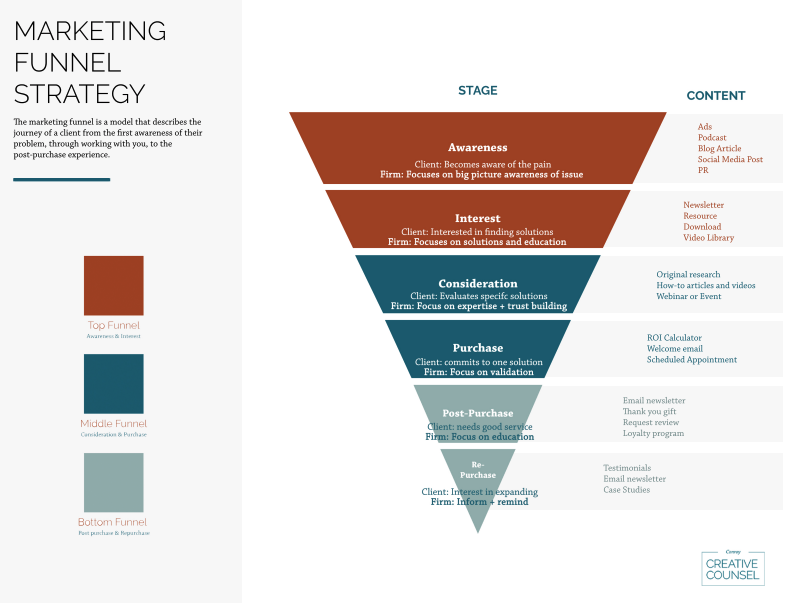Establishing a strong online presence is paramount for businesses of all sizes and industries. For law firms, in particular, having a professional and easily identifiable online presence is not just a competitive advantage; it’s a necessity. One essential step in building a solid online presence is registering and managing your own domain.
A website domain is essentially your website address, and it’s a way to provide visitors with an easy-to-remember phrase or name to search for to access your website. In this guide, we’ll walk you through the benefits of owning your domain and show you how straightforward the process can be.
Why Register Your Own Domain?
Before diving into the steps, let’s explore why owning a domain is crucial for law firms.
- Brand Identity — A custom domain, like www.YourLawFirmName.com, establishes a professional image for your practice. It reinforces your brand identity and makes you more memorable to potential clients.
- Credibility — A domain name adds credibility and trustworthiness to your law firm. Clients are more likely to trust a website with a professional domain than a generic or free subdomain.
- Control — Registering your domain means you have complete control over it. You can customize it, create professional email addresses (e.g., info@YourLawFirmName.com), and ensure it accurately represents your firm.
- SEO Benefits — Having your domain allows you to optimize your website for search engines more effectively. You can choose relevant keywords in your domain name, enhancing your online visibility.
- Flexibility — A custom domain provides flexibility for your online presence. You can create additional subdomains for specific services or practice areas, such as blog.YourLawFirmName.com or familylaw.YourLawFirmName.com.
Registering and Managing Your Own Domain
Now that you know the benefits, let’s discuss the process of registering and managing your domain.
Choose a Domain Name
Selecting the right domain name is a crucial first step. It should be easy to remember, relevant to your law firm, and ideally include your firm’s name. Here are some tips:
- Keep it Simple — Shorter domain names are easier to remember and type. Avoid hyphens and complicated spellings.
- Use Keywords — If possible, incorporate keywords related to your legal specialization. For example, if you specialize in family law, consider including “family” or “divorce” in your domain name.
- Check Availability — Use domain registrar websites like GoDaddy, Namecheap, or Google Domains to check if your desired domain is available.
Register Your Domain
Once you’ve chosen a domain name, it’s time to register it. To do so, you should select a reputable domain registrar. Popular options include GoDaddy, Namecheap, Google Domains, and Bluehost.
From there, you must use their search tool to see if your domain name is available. If your desired domain name is already taken, you must choose a new one.
Set Up Hosting (Optional)
While not strictly necessary, setting up hosting is a good idea if you plan to build a website. Hosting provides a place for your website’s files to live. Many domain registrars also offer hosting services, making bundling convenient.
-
- Choose a Hosting Provider — If your domain registrar offers hosting services, consider using them for simplicity. Other popular hosting providers include Bluehost, SiteGround, and HostGator.
- Select a Hosting Plan — Choose a hosting plan that suits your law firm’s needs. A shared hosting plan is usually sufficient for a small to medium-sized firm.
- Link Your Domain — If you purchased hosting separately, you must connect your domain to your hosting account. Your hosting provider will provide instructions for this.
- Email Setup — If you want professional email addresses (i.e., info@YourLawFirmName.com), your hosting provider can help you set up email hosting. You also have the option to use email hosting services like Google Workspace or Microsoft 365.
Associated Costs
While registering and managing your domain is a valuable investment for your law firm’s online presence, it’s essential to consider the associated costs. Below, we break down the expected expenses you might encounter:
- Domain Name — The cost of registering a domain name varies depending on the domain registrar and the domain extension (e.g., .com, .law, .legal) you choose. You can expect to pay between $10 to $50 per year for a standard domain.
- Hosting Plan — Hosting costs can range widely based on your provider and the plan you choose. Shared hosting plans, suitable for most law firms, typically range from $3 to $20 monthly.
- SSL Certificates — SSL certificates often come free with hosting packages. However, if your hosting provider doesn’t offer a free SSL certificate, you might need to purchase one separately, costing around $10 to $100 per year.
- Professional Email Service — If you use a professional email service like Google Workspace or Microsoft 365, costs can range from $5 to $20 per user per month.
Let Conroy Creative Counsel Help Set Your Law Firm Apart from the Competition
Registering and managing your own domain is a straightforward process that offers numerous benefits to law firms. Following the steps outlined in this guide, you can establish a professional online presence that sets your law firm apart and helps you connect with clients more effectively in the digital age.
After you have registered your domain name, it’s time to get to work on your website! Conroy Creative Counsel specializes in designing outstanding customized websites for law firms that look great and drive results. Our design team has won awards for their innovative and effective websites for law firms. We stay on top of the latest trends and technologies to ensure your website is current and future-proof.
Contact us today and tell us about your firm!











